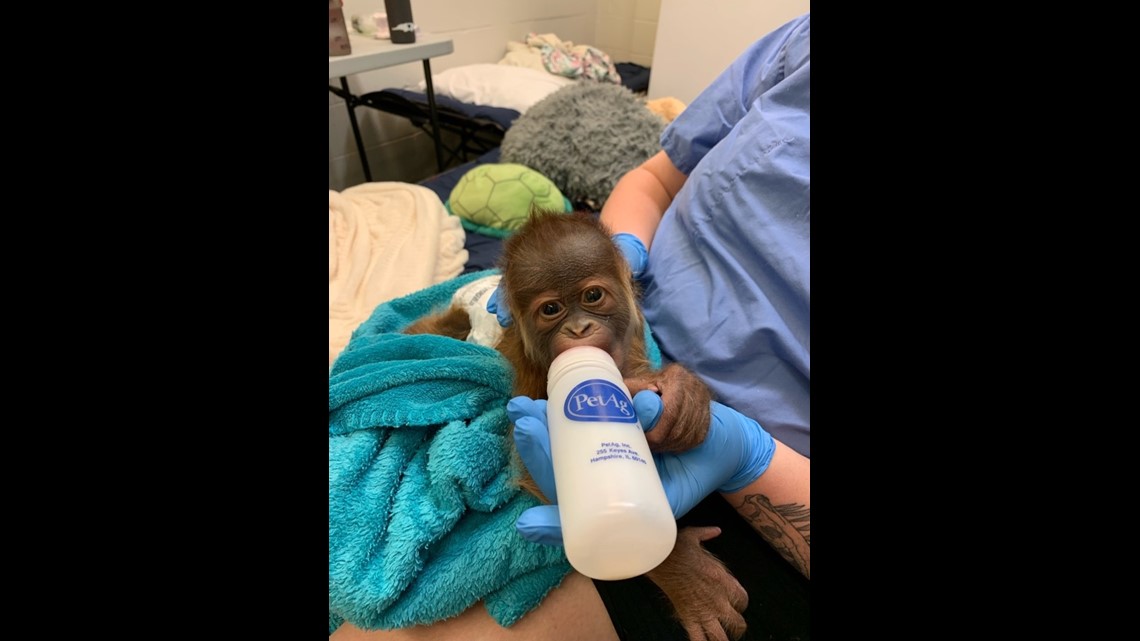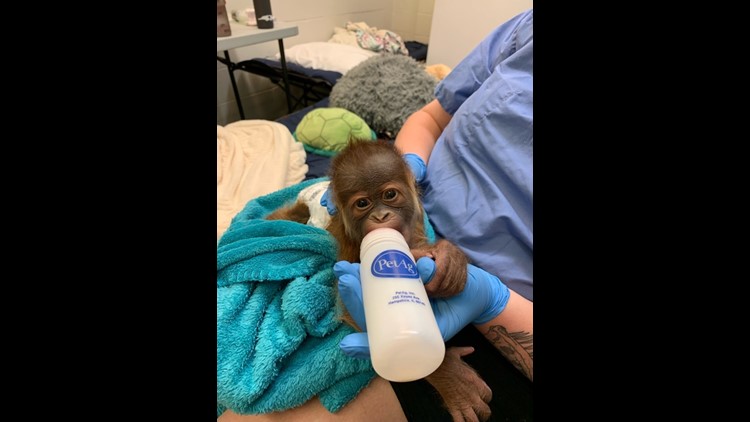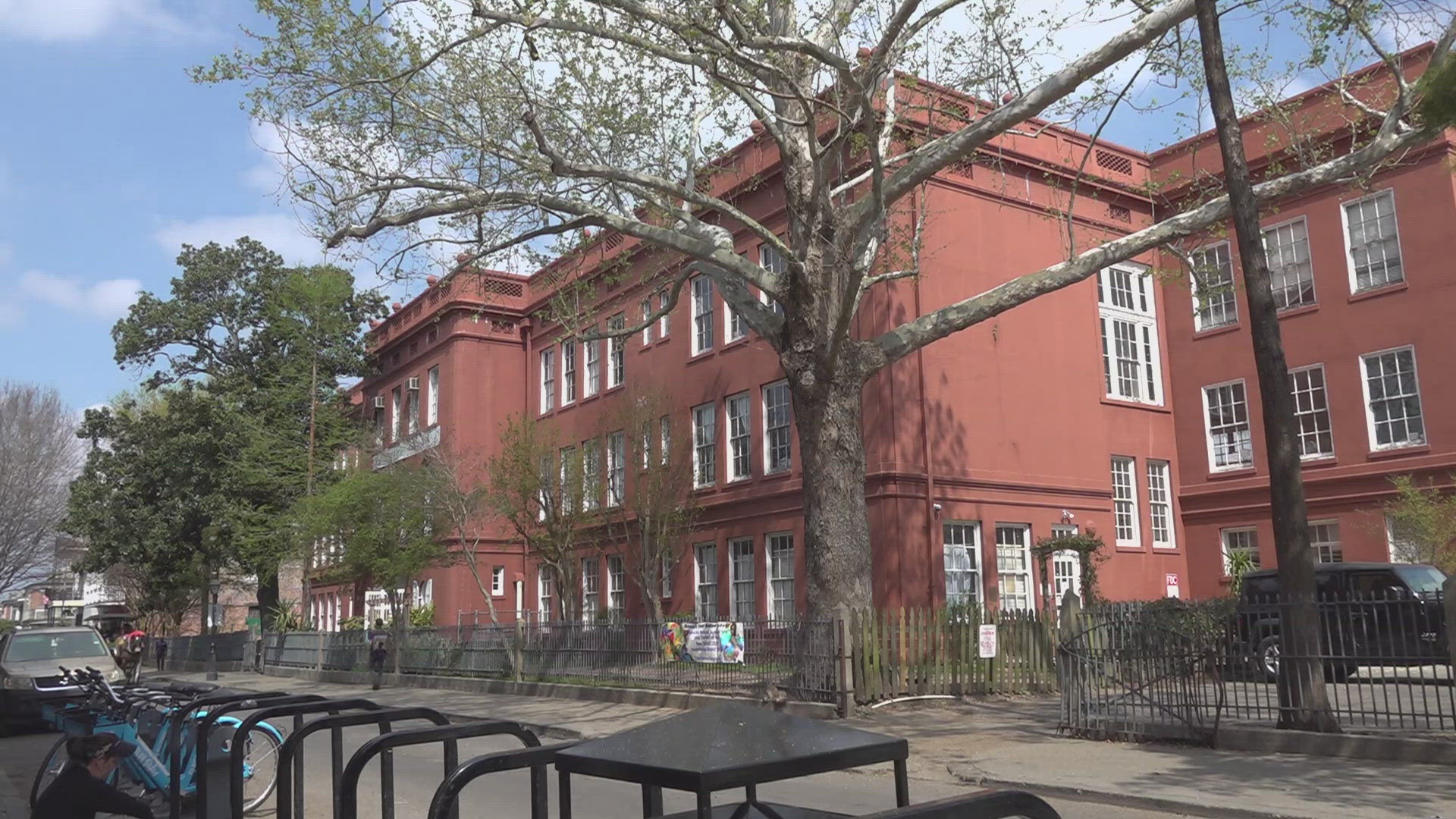NEW ORLEANS — The Audubon Zoo is consulting with Children's Hospital in New Orleans to treat their newborn orangutan after the infant showed signs of weakness and lack of nursing.

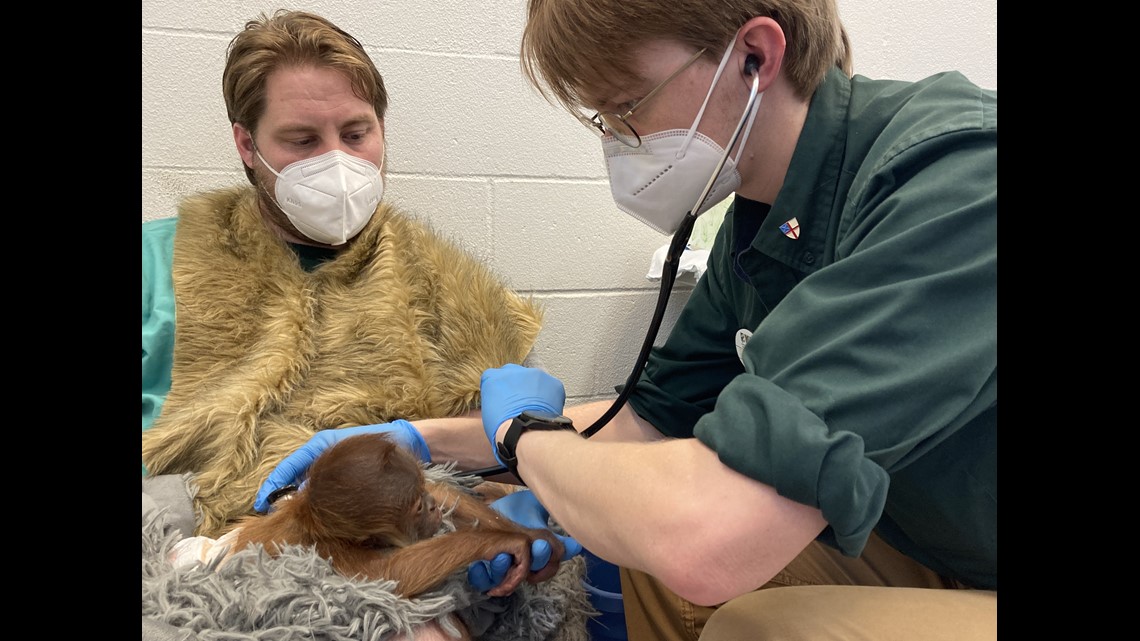
Officials say they were concerned about the infant's body temperature and weight, so they intervened to hand-rear and bottle-feed the infant until he can safely be reunited with his mom, Menari.
"The infant's care team also noticed that his suckling response was weak and inconsistent," said Audubon's Senior Veterinarian Bob MacLean. "Children's Hospital New Orleans offered their support for the critically endangered infant by providing the expertise of a clinical speech pathologist and lactation specialists. The lactation specialists are working with the infant to assess his suckling reflex and train our team to stimulate the appropriate suckling response. So far, this has been very successful."

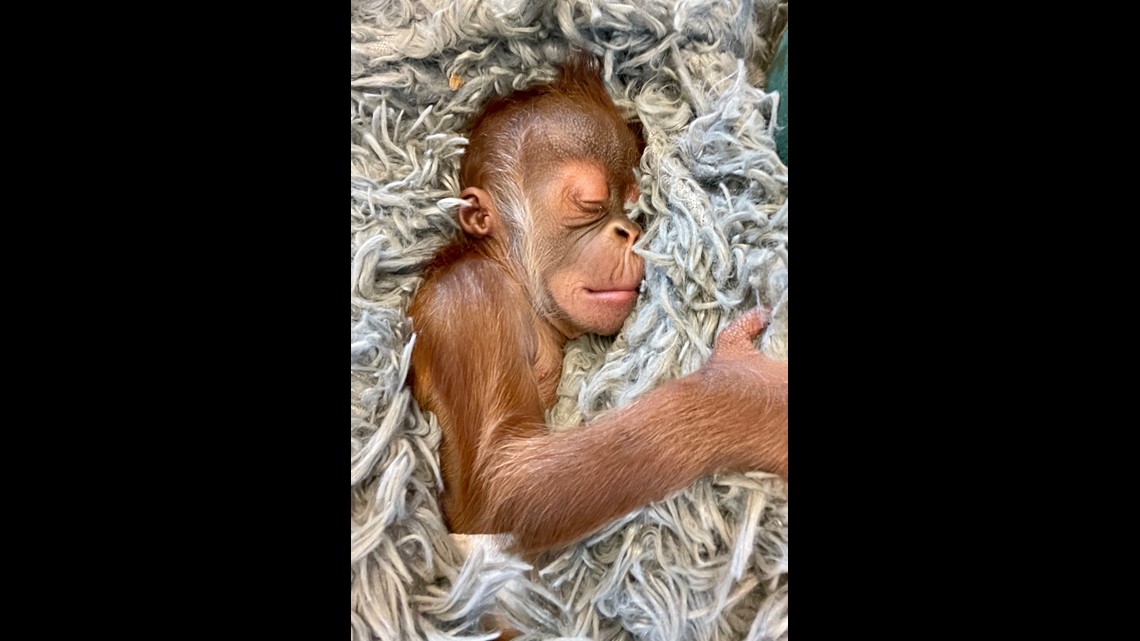
Children's Hospital is analyzing the infant's blood at the hospital, which provides Audubon with faster results than a veterinary laboratory. Lab work is indicating possible central hypothyroidism.
"Central hypothyroidism slows normal metabolic growth and is relatively rare, found in only 1 in 100,000 human infants," MacLean explained. "While we are waiting to validate results, we plan to administer medication to mitigate the condition as well as work with the Species Survival Plan veterinary advisor to prepare a plan for treatment should this prove problematic."
According to a release, there are a number of key milestones the infant will need to achieve before reuniting with his mother. The infant needs to establish a consistent suckling response, and Menari will need to produce enough milk to sustain him--Orangutan SSP experts indicated it could take up to two weeks for her to develop full milk production. The infants care team also needs to assess the infant's possible hypothyroidism and his response to treatment.


"We have high hopes that he will continue to improve under the 24/7 care of our dedicated primate team," said Audubon Zoo's Vice President and General Curator Bob Lessnau. "We are so thankful for our expert team of consultants and for the community's outpouring of support for this critically endangered infant."
The zoo says Sumatran orangutans are classified as "critically endangered" by the International Union for Conservation of Nature. There are reportedly fewer than 14,000 living orangutans living in the wild and their numbers are declining due to human-wildlife conflict because of the spread of palm oil plantations into forest habitats.

